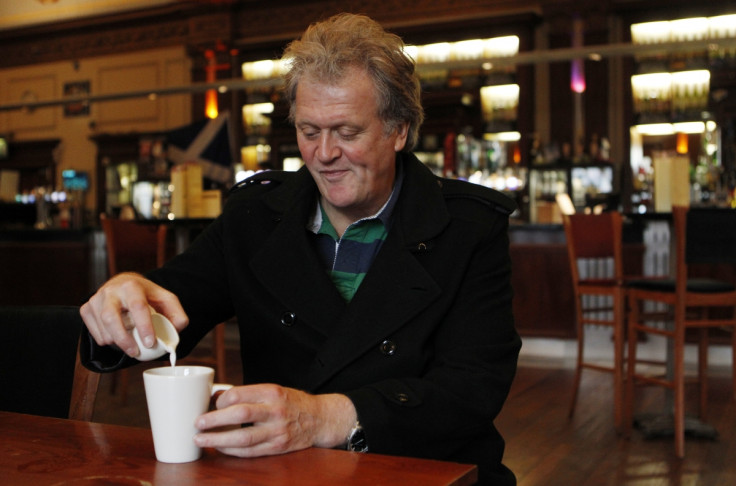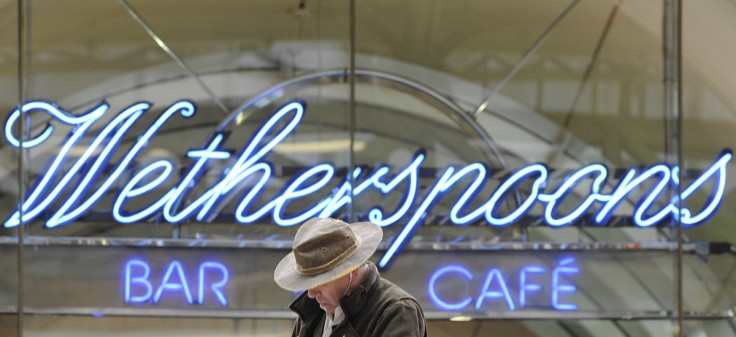JD Wetherspoon: Tim Martin hits out at living wage and taxes again as profits fall 25%

JD Wetherspoon chairman Tim Martin has slammed the UK government's living wage plans again, as the company reported its profits were down a quarter. Pre-tax profit at the pub chain was down 25.1%, despite a 7.4% increase in revenue to £1.5bn (€2.05bn, $2.32bn). Martin used the opportunity of the results to criticise government policy such as the living wage but also VAT rules for pubs and restaurants and corporate governance.
The chairman said the company had raised minimum hourly wages twice since October 2014 and July 2015, before the government increases the legal minimum wage to £7.20 an hour by 2016 and £9 an hour by 2020.
"In addition, as Wetherspoon shareholders are aware, we pay about 40% of our profits (£30.7m in the year under review) as a bonus or free shares, over 80% of which is paid to people who work in our pubs," he said.

"By pushing up the cost of wages by a large factor, the government is inevitably putting financial pressure on pubs, many of which have already closed. This financial pressure will be felt most strongly in areas which are less affluent, since the price differential in those areas between pubs and supermarkets is far more important to customers."
Martin had hit out at the new government policy just a week after it was announced in George Osborne's July budget statement, saying it gives hospitality companies an unfair disadvantage. Costa owner Whitbread has also made internal changes to adapt to the living wage plans.
It is not just hospitality companies who spoke up about the new rules. Retailer Next said it will increase prices to cover the extra costs and its representing body said the policy change might lose the retail sector 80,000 jobs.
The pub giant's income statement shows it lost £13.7m on property, which contributed to the fall in profit. Martin also slammed taxation for pubs and restaurants, arguing the 20% VAT rate hospitality companies have to pay, against a close to zero rate for supermarkets, gave the latter the opportunity to cover tax costs over alcoholic beverages.
He said: "We believe that pubs are taxed excessively and that the government would create more jobs and receive higher levels of overall revenue, if it were to create tax equality among supermarkets, pubs and restaurants."
Martin said pubs and restaurants have lost half their beer sales to supermarkets. The business giant has raised his voice in regards to tax policy a lot in the past and said JD Wetherspoon has paid almost 42% of its sales in taxes over the last financial year.
© Copyright IBTimes 2025. All rights reserved.






















